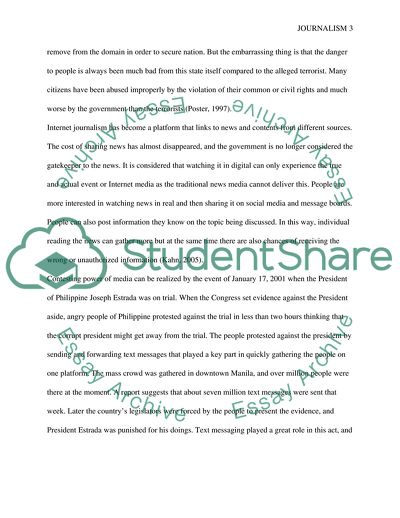Cite this document
(Journalism, Mass Media and Communication Literature review Example | Topics and Well Written Essays - 2500 words, n.d.)
Journalism, Mass Media and Communication Literature review Example | Topics and Well Written Essays - 2500 words. https://studentshare.org/journalism-communication/1855217-how-would-you-assess-the-political-potential-of-citizen-journalism
Journalism, Mass Media and Communication Literature review Example | Topics and Well Written Essays - 2500 words. https://studentshare.org/journalism-communication/1855217-how-would-you-assess-the-political-potential-of-citizen-journalism
(Journalism, Mass Media and Communication Literature Review Example | Topics and Well Written Essays - 2500 Words)
Journalism, Mass Media and Communication Literature Review Example | Topics and Well Written Essays - 2500 Words. https://studentshare.org/journalism-communication/1855217-how-would-you-assess-the-political-potential-of-citizen-journalism.
Journalism, Mass Media and Communication Literature Review Example | Topics and Well Written Essays - 2500 Words. https://studentshare.org/journalism-communication/1855217-how-would-you-assess-the-political-potential-of-citizen-journalism.
“Journalism, Mass Media and Communication Literature Review Example | Topics and Well Written Essays - 2500 Words”. https://studentshare.org/journalism-communication/1855217-how-would-you-assess-the-political-potential-of-citizen-journalism.


